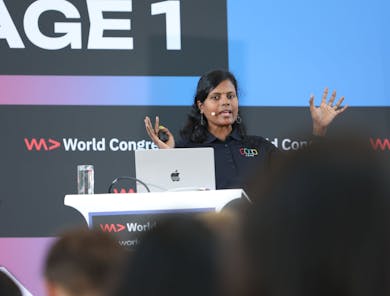In the ever-evolving world of technology, the landscape of search engines and AI tools is shifting at an unprecedented pace. This transformational journey is being shaped by the rising influence of AI-powered tools like ChatGPT, which are increasingly setting new benchmarks in search functionalities. So, what does this mean for search engines like Google? Let’s delve into this evolving market and uncover the intricate dynamics at play.
Unpacking SEO and AI Experience
Eric Enge, a seasoned expert in SEO, brings a wealth of experience to our discussion. Co-author of “The Art of SEO” and founder of Stone Temple Consulting, Eric comes with 25 years of insight into SEO landscapes and a keen understanding of AI. His background in SEO and technical grasp of AI and neural networks set the stage for a deep dive into the comparison between ChatGPT and Google, and how these tools are reshaping the search industry.
We discussed his analysis of the quality of research results in Google vs. ChatGPT. We also talked about what the rise of AI crawlers means to content creators. Check the recording here or on our podcast.
The SEO Journey
Eric introduced our audience to his extensive experience, highlighting that understanding both traditional algorithms and AI-backed mechanisms is crucial for evaluating modern search effectiveness. From gaining technical insights by studying under AI visionaries like Geoffrey Hinton and Andrew Ng to developing simple AI algorithms, Eric’s journey speaks to the blend of SEO expertise and AI insight that’s needed to navigate today’s search ecosystems.
The Search Ecosystem: Google vs. ChatGPT
The battle between traditional search engines and AI-driven solutions is heating up. Google, the behemoth of search, faces competition from newer AI models such as ChatGPT. Enge’s detailed analysis offers keen insights into their respective advantages.
Google’s Ground
Google continues to dominate in areas like:
- Commercial Queries: It excels in leveraging vast databases and user location services.
- Local Searches: With precise user-location data, Google’s services, like Maps, often provide superior results.
- Navigational Queries: Google remains the leader due to its comprehensive crawling and indexing system.
The AI Advantage
Conversely, ChatGPT stands out in areas such as:
- Content Analysis: Offers unique insights, positioning itself as a potent tool for content-centric queries.
- Disambiguation: Provides a more varied interpretation of queries, which can accommodate multiple contextual meanings.
According to Eric Enge, while traditional search remains unmatched in certain domains, AI solutions like ChatGPT bring fresh methodologies to the table, redefining how content is engaged and analyzed.
Challenges of AI-Powered Search
The rising dependency on AI-driven tools like ChatGPT has its challenges. From struggling with fundamental geographical data (as highlighted by Enge’s example of navigation issues) to the inherent biases AI can possess, these tools need careful deployment.
The Problem of Freshness and Accuracy
AI, with its inherent design, deals with both old and new data in unique ways. Unlike real-time search results commonly provided by Google, AI models often have delays between model updates, triggering challenges in maintaining data freshness. This latency raises concerns, particularly as data-driven responses can quickly become outdated.
AI as a Developer Partner
For developers, AI presents both opportunities and challenges. AI tools excel as brainstorming partners but may fall short as ultimate content creators. Enge emphasized:
“Gen AI tools are great for brainstorming…the perfect information set, but not the ultimate truth.”
In other words, developers need to harness AI as a collaborative tool while maintaining a critical eye on the output.
A New Frontier for Developers
As AI tools become more accessible, there’s a risk that developers might experience knowledge gaps. With AI simplifying many coding tasks, there’s a potential for a shallow understanding of core concepts. This is particularly a concern for those new to the field who might rely too heavily on AI shortcuts rather than deeper learning.
Developers are encouraged to balance AI’s efficiencies with traditional learning to ensure a rounded understanding of programming and its foundational principles.
Conclusion
Navigating the fine line between traditional and AI-powered search, Eric Enge’s insights serve as a vital guide for developers and tech enthusiasts alike. Embracing AI tools like ChatGPT offers exciting possibilities, yet it demands a discerning eye and a commitment to inquisitive learning.
For those keen on delving deeper into this subject, Eric Enge’s article offers an extensive exploration of how AI is redefining search. You can watch his in-depth discussion in the video, “Coffee with Developers with Eric Enge,” for an even broader understanding.
In summary, while AI ushers in a new era of search optimization, the key for developers will be to leverage its strengths without losing sight of acquiring in-depth knowledge. With a balanced approach, AI can enhance productivity and innovation, driving the future of technology forward.












